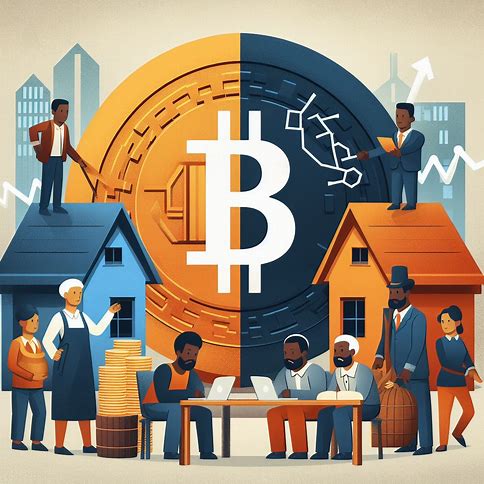Initial Coin Offerings (ICOs) offer a new way for blockchain startups to raise funds. But with great potential comes great risk. Would you like to know the risks, regulations and due diligence? Here is everything you need to know.
What is an Initial Coin Offering (ICO)?
An Initial Coin Offering, or ICO is known as a way for cryptocurrency and blockchain startups to raise money, similar to how companies raise funds through an Initial Public Offering (IPO) on the stock market. In an ICO, instead of selling shares, the company sells digital tokens or coins.
How do ICOs work?
- A startup creates a new cryptocurrency or token, often built on an existing blockchain like Ethereum.
- They release a whitepaper outlining their project, goals, and how the token will be used.
- The ICO is announced, and a target amount to be raised is set.
- Investors buy the new tokens with existing cryptocurrencies like Bitcoin or Ether, or sometimes with fiat currency.
- The funds raised are used to develop the project, and the tokens can often be traded on cryptocurrency exchanges.
The ICO boom
ICOs really took off in 2017, with over $5 billion raised that year alone. Some of the most successful ICOs include:
1. Filecoin: Raised $257 million
2. Tezos: Raised $232 million
3. EOS: Raised $185 million
Many saw ICOs as a way to get in early on the next big thing in crypto. However, the hype also attracted scams and poorly planned projects.
Related: How Blockchain Is Transforming the Travel Industry
Risks of Investing in ICOs
While ICOs can offer the potential for high returns, they also come with significant risks that every investor should be aware of:
1. Scams and fraudulent projects
The ICO craze attracted many scammers looking to make a quick buck. Some red flags of a potential scam include:
- Unrealistic promises of guaranteed returns
- Anonymous or fake team members
- No clear roadmap or use case for the token
- Plagiarized or incomplete whitepapers
2. Lack of regulation and investor protection
Unlike traditional IPOs, ICOs are largely unregulated. This means there are few legal protections for investors if something goes wrong.
3. High volatility and price manipulation
Cryptocurrency prices are notorious for their volatility, and ICO tokens are no exception. Prices can be easily manipulated by whales (large holders) or pump and dump schemes.
4. Difficulty cashing out
Even if an ICO is legitimate, there’s no guarantee you’ll be able to sell your tokens for a profit. Many have low trading volumes or are only listed on obscure exchanges.
ICO Regulations
Regulators worldwide have struggled to keep up with the fast-moving of ICOs. Approaches vary:
- China and South Korea banned ICOs entirely
- The US SEC treats most tokens as securities, requiring registration
- Some countries like Switzerland and Singapore have been more permissive
This is for each country to strike a balance between protecting investors and allowing innovation in the crypto space.
Due Diligence for ICO Investors
If you’re thinking of investing in an ICO, it’s crucial to do your own thorough research. Some key things to look into:
1. The team: Look for experienced members with relevant backgrounds
2. The project: Does it solve a real problem or have a unique use case?
3. The token: How will it be used within the ecosystem? Is there a clear demand?
Key Takeaways
1. ICOs are a way for crypto and blockchain startups to raise funds by selling tokens
2. While ICOs can offer high potential returns, they also come with major risks like scams, lack of regulation, volatility, and difficulty cashing out
3. egulations vary worldwide, from outright bans to more permissive approaches
4. Investors must do thorough due diligence on the team, project, token, and community
5. Never invest more than you can afford to lose, diversify, and be prepared for potential losses
Frequently Asked Questions
1. What happens after an ICO?
After a successful ICO, the funds raised are used to develop the project as outlined in the whitepaper. The tokens sold in the ICO are often listed on cryptocurrency exchanges, where they can be traded. The value of the tokens can fluctuate based on the progress and adoption of the project.
2. Can I participate in an ICO with fiat currency?
Most ICOs only accept contributions in cryptocurrency, usually Bitcoin or Ethereum. However, some ICOs do allow participation with fiat currency like USD. It depends on the specific project and the regulations they are subject to.
3. How can I store my ICO tokens safely?
ICO tokens should be stored in a secure digital wallet. The safest option is a hardware wallet like a Ledger or Trezor. If using a software wallet, ensure it is from a reputable provider and never share your private keys. Always double-check the token contract address to avoid sending funds to the wrong address.
4. What should I do if I suspect an ICO is a scam?
If you suspect an ICO is a scam, do not invest any funds. Report it to the relevant authorities in your country, such as the SEC in the US. Spread awareness to protect other potential investors. Remember, if an ICO seems too good to be true, it probably is.
5. How are ICO tokens taxed?
The tax treatment of ICO tokens varies by country. In the US, the IRS treats them as property, subject to capital gains tax when sold or exchanged. In other countries, they may be treated as income or subject to different regulations. Always consult with a local tax professional for guidance.










